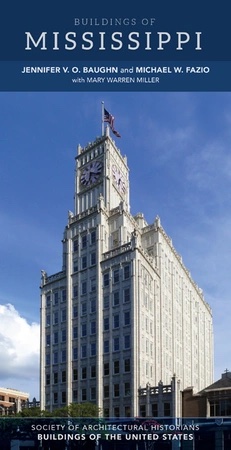
The Natchez City Cemetery, which has expanded from ten to over one hundred landscaped acres, is laid out in sections of grids and contains Mississippi’s most significant funerary art. The works of Edwin Lyon, the state’s premier antebellum sculptor, and Natchez stonecutters Robert Rawes and Thomas Dixon are among the mid-nineteenth-century tombstones. The cast-iron fencing is noteworthy, and the cemetery includes a Grecian cast-iron mausoleum made by Wood and Perot of Philadelphia and retailed by Miltenberger and Company of New Orleans. The Craftsman-influenced Shelter House (1914) was designed by Samuel A. Marx (1885–1964), a Natchez native based in Chicago. Across from the cemetery at 1 Cemetery Road is Weymouth Hall (1855), a raised Greek Revival house designed by James McClure. North at 35 Cemetery Road is the Federal-style planter’s cottage, The Gardens (c. 1829), and the Natchez National Cemetery (41 Cemetery Road), established in 1867.








